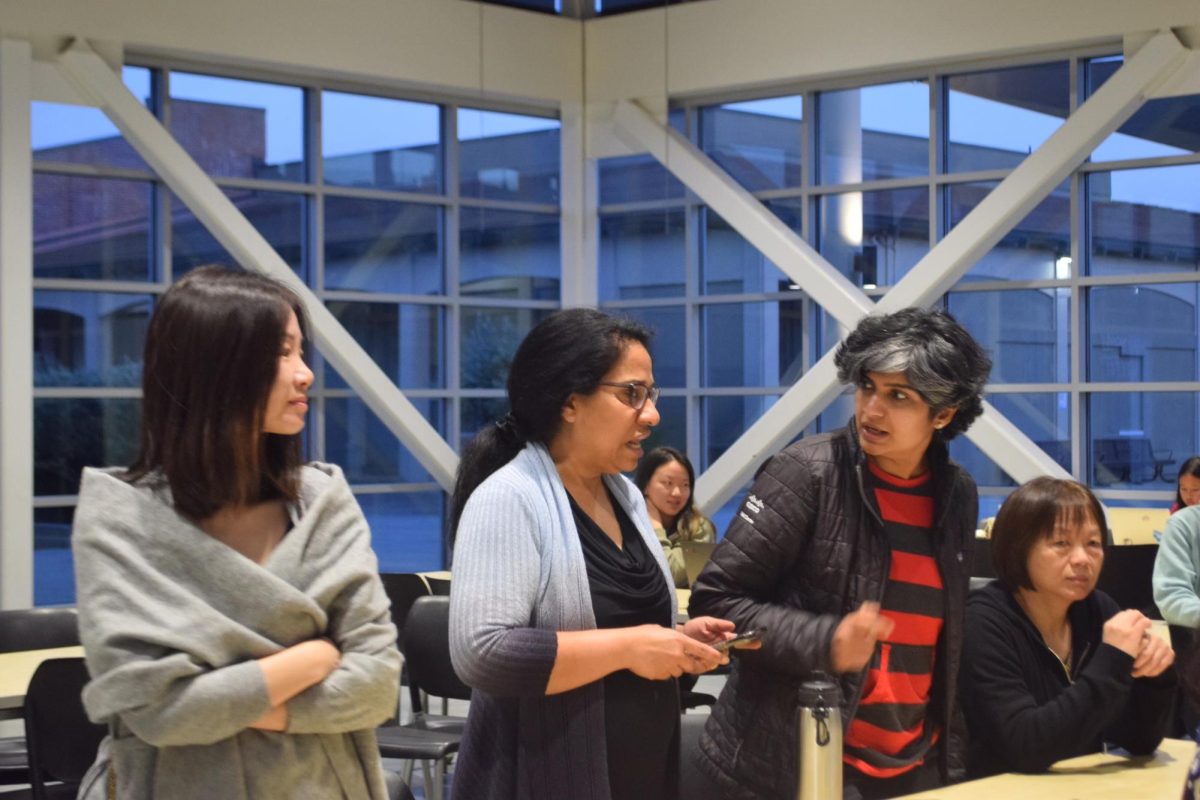
MV Science Olympiad is a relatively new club on campus that offers preparation resources for the Science Olympiad as well as opportunities to participate in other various science competitions. As competition season approaches, El Estoque sat down with club president senior David Wang and Director of Written Events Jenny Xu to talk about the MV Science Olympiad benefits towards upcoming competitions and events.
El Estoque: What is the Science Olympiad about?
David Wang: The Science Olympiad is a national organization which focuses on promoting science through hands-on activities and competitions. It is similar to DECA but [is] for sciences. There are teams or chapters that [come from] all across the nation that cover elementary, middle and high school. Within the club, they make a team of 50 competitors that spread themselves out across 23 events offered and compete in regional, state and national competitions.
EE: How is the Science Olympiad different from other olympiads and academic competitions?
DW: There is a misconception that we are related to the other science olympiads such as the Chemistry Olympiad and Physics Olympiad; however, they are individual competitions. Science Olympiad is more of a team competition. It really focuses on working as a team, learning together and more hands-on competitions.
EE: What other opportunities does the MV Science Olympiad Club offer?
DW: Our main activity this year is preparing for the regional tournament, but also to sign up for other events such as the US Crystal Growing competition and the Miraloma Invitational. We decided to sign up for the US Crystal Growing competition which is kind of a niche event where we are provided resources to create the purest crystal. [The Miraloma Invitational] is a smaller competition run by schools. Miraloma is in Sacramento and we are going to go up there on Jan. 10. For that, we are preparing two teams of 15 students each and we are making sure that everyone is signed up for the events that they are interested in and they are prepared for their events. We do this to give our members more of a comprehensive view of science.
EE: What special memories do you have from your club meetings and events?
Jenny Xu: I remember playing around with some lights and circuits while studying for the Circuit Lab event. It was fun to stick random wires and random light bulbs into a board and see the bulbs light up, even though I didn’t know how it worked. Nobody knew what to expect because it was our first year at regionals.
EE: How do you help competitors prepare for the Science Olympiad?
JX: Since we have a lot more people [this year], we have a screening process where everyone who is interested signs up to take tests and we have two different types of screening processes: one for written events and engineering events.
DW: We hold study sessions after school that are structured [where] students can come in and use our resources. We do have a library of textbooks and other resources and our officers to answer any questions. But in general, it is pretty free-formed.
EE: What past success have MVHS Science Olympiad teams had?
JX: At the regional competition, we had a first place finish at a building event, a second [place] at a chemistry lab [event] and a sixth [place] in a problem solving [event].
DW: Last year was our first year, so a lot of it was to see if we could get the logistics down. But we did have some rather promising results despite [competing for] our first year.
EE: What future aspirations do you have for the club?
DW: The Science Olympiad only allows one team per state to go to nationals, [which is] extremely difficult. Especially since these are schools that have tremendous preparation [for] the Science Olympiad. It is hard for schools in the Bay Area, especially a new club, to [qualify for] nationals. But, I definitely believe making states consistently is a reasonable goal and that we should be able to achieve it.
The MV Science Olympiad Club holds study sessions every Thursday after school in Room D205.







